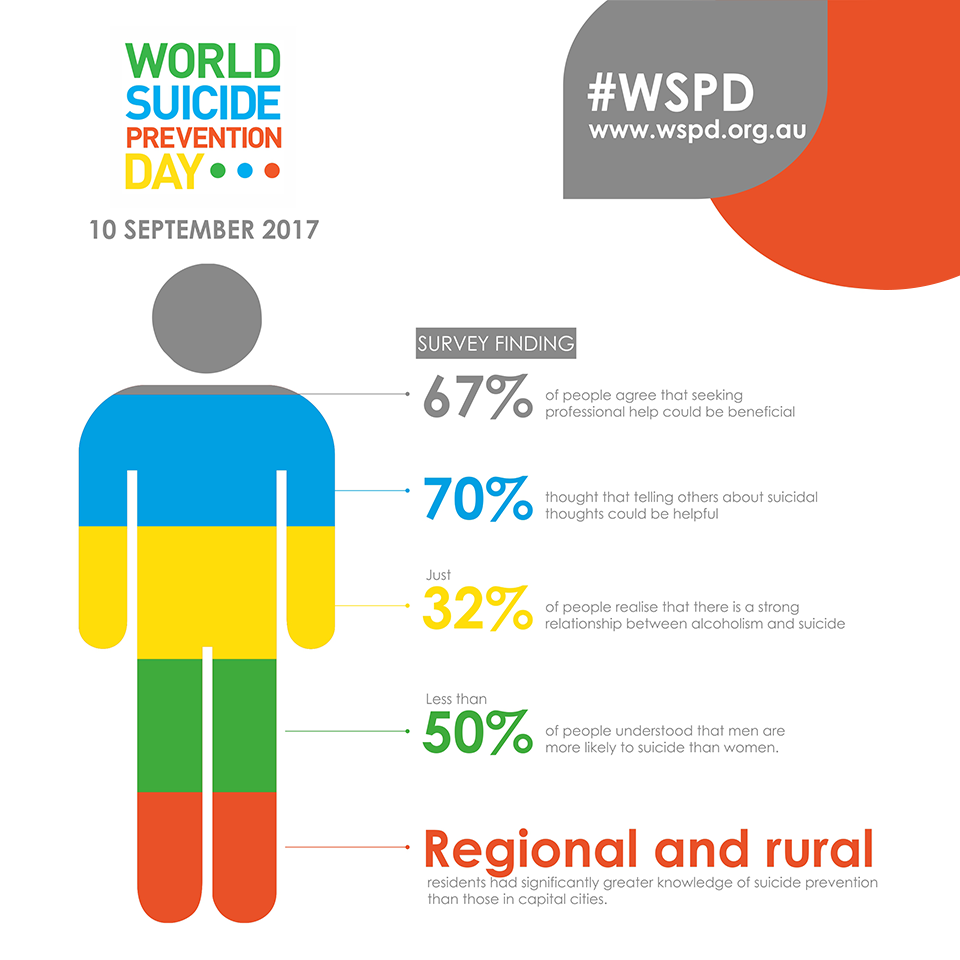If you are living in rural and regional Australia, you are at a higher risk of suicide than your friends and family living in the city. You have less access to services and mental health care and the stigma around suicide is still significant. So how can we save more lives? We explore this issue in episode five.
Rural Suicide Prevention
A quarter of people in NSW live outside the major centres of NSW. Living in rural and remote communities can come with many lifestyle benefits, but it can also be challenging when it comes to accessing services.
The reported prevalence of mental illness in rural and remote Australia appears similar to that of major cities. Access to mental health services are substantially more limited than in major cities. Tragically, rates of self-harm and suicide increase with remoteness.
Living in rural, regional or remote communities, you are unlikely to find the array of services that people in the cities can access, and factors such as transport can also become a barrier to accessing appropriate care. Being familiar with health services in your area and other online support will help you prepare for when they are needed. Being prepared for your appointment will also help.
You can find a guide on preparing for your GP appointment HERE as well other downloadable resources.
Although these areas may have fewer services, recent findings by Suicide Prevention Australia have found that regional and rural residents have significantly greater knowledge of suicide prevention than those in capital cities.

Rural life issues
Many people who live in regional areas pride themselves on their resilience. Rural communities are challenged by the elements much more than people living in cities. They are more likely to be directly affected by the impact of droughts or floods. Entire local economies – especially those based on agriculture – may depend on the weather.
Living and working to the rhythm of climate cycles requires great personal strength, and this toughness can translate into a reluctance to admit vulnerability or seek help when in trouble. Mental health difficulties may be interpreted as weakness by people who expect themselves and others to push through times of trouble, and who may therefore be hesitant to seek or offer support for psychological distress.
Compounding this reticence, people in small communities avoid seeking help from professionals who are already known to them as neighbours or through local networks. People may fear their difficulty will be revealed, and that this will reduce their standing in their community[1].
Listen back to episodes Talking to your GP to learn more about accessing services in rural communities
Listen back to Disaster Trauma, to hear about how others have coped through natural disasters.
National support initiatives
In September, the nation tends to shine a light on suicide prevention, with R U OK DAY and World Suicide Prevention Day, although it is important to continue these conversations throughout the year.
R U OK Day

R U OK have developed a simple 4 step tool to help you approach having a conversation with someone who you think needs some help with their mental health.
Rural suicide prevention initiatives
In NSW, there are a number of initiatives established to support suicide prevention in rural and remote communities.
Our Healthy Clarence
Our Healthy Clarence is an initiative to reduce suicide and to provide help post-suicide for the region. Since early 2015 the Clarence Valley community has experienced higher than state average rates of suicide.
Our Healthy Clarence relies on the community being aware of mental health issues, and the services that are available, and increasing the community’s capacity to respond to people that might be in the early stages of mental crisis and mental health issues
RAMHP Coordinator, Sam Osborne is one of the drivers behind Our Healthy Clarence, helping to raise the visibility in the community. Sam attended Grafton Saleyards to help engage with the rural community on these issues. The initiative also includes several new projects such as pop up drop-in spaces in Grafton and Yamba and Headspace.
The Ripple Effect
The Ripple Effect is an online intervention designed to investigate what works to reduce the self-stigma (negative attitudes you have towards yourself) and perceived-stigma (negative attitudes you believe others have about you) among males from the farming community, aged 30-64 years, who have been bereaved by suicide, attempted suicide, cared for someone who attempted suicide, have had thoughts of suicide, or been touched by suicide in some other way.
Help services
If you or someone else is in immediate danger, call 000 or go to your nearest hospital emergency department.
If you’re concerned about your own or someone else’s mental health, you can call the NSW Mental Health Line 1800 011 511 for advice.
Having a tough time and need someone to talk to right now? The following services can help. They are confidential and available 24/7.
- Lifeline – 13 11 14
- Men’s Line Australia– 1300 78 99 78
- Kids Help Line – counselling and support provided for young people (to 24 years old) who are feeling depressed, sad, or lonely – or just need someone to talk to – 1800 55 1800
- Domestic Violence Line – 1800 656 463
- Suicide Call Back Service– 1300 659 467
